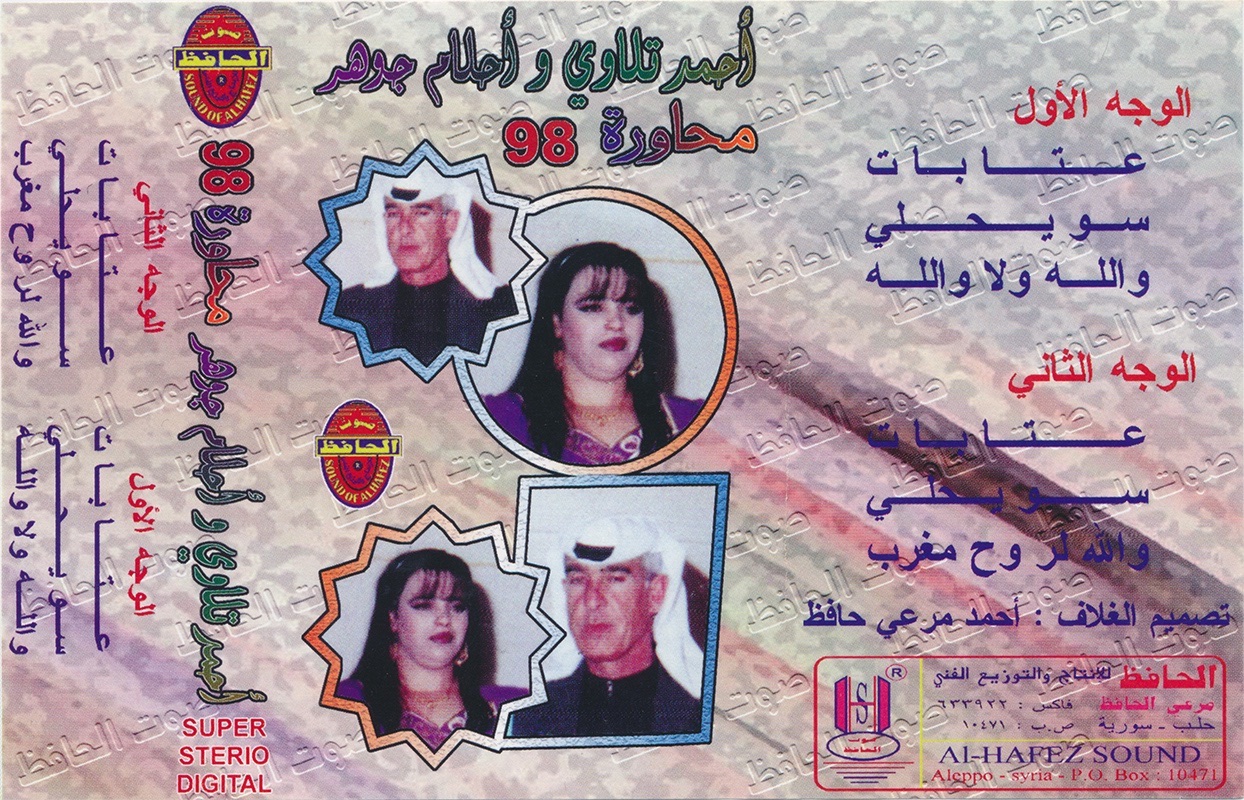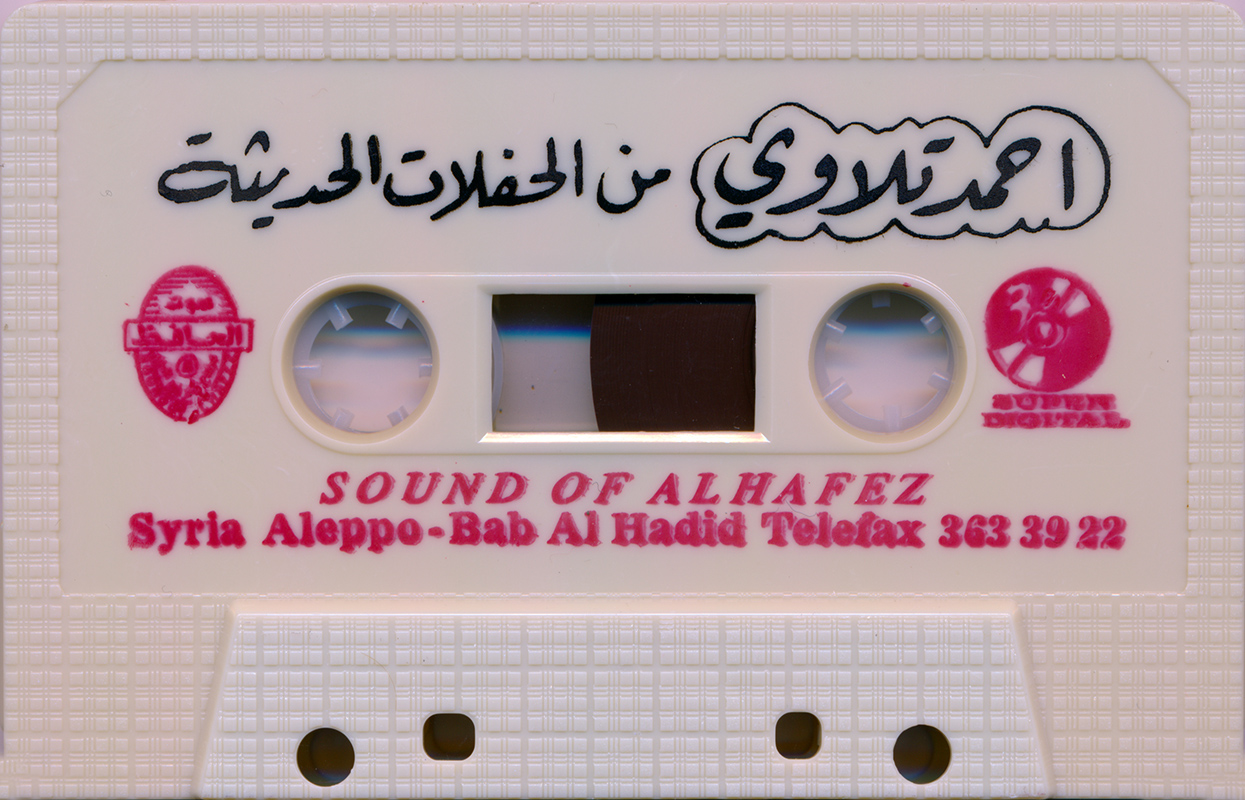


Ahmad Tilawi & Ahlam Jawhar
Muhawara 98 (Dialogue 98)
SIDE A
- Atabat
- Swehli
- Wallah Wala Wallah (I Swear to God)
SIDE B
- Atabat
- Swehli
- Wallah Larouh Mgharreb (I Swear I'm Heading West)
Label
Sawt Al Hafez
Location Issued
Aleppo, Syria
Artist Origin
Idlib, Syria
Syria
Credits
Cover Design: Ahmad Mere'e Hafez
More Info
In this live tape, we listen to an attaba dialogue between one of the most prominent names in this field, Ahmad Tilawi, and the seasoned attaba and shaabi singer Ahlam Jawhar, whose hoarse voice complements Tilawi's roughness and adds an enjoyable dynamic to the tape, explaining why Tilawi maintained his habit of sharing the stage with female singers throughout his decades-long career. Ahmad Tilawi is considered a cornerstone in the recorded archive of the Syrian shaabi music scene. His was strongly present in the 1980s and 1990s, performing ataba, shaabi, mawwal, and dabke at private parties and weddings, to the extent that it became difficult to check a few cassettes in our archive without encountering his name. Sharing the stage with Tilawi was a rite of passage for entering the shaabi scene for several female and male singers, such as Fariha Al-Abdullah, Ibrahim Al-Saad, and Hussein Al-Abdullah, especially in the field of ataba, which Tilawi’s name became synonymous with. Tilawi lived in his city of Saraqib in the countryside of Idlib for most of his life, and did not leave it, heartbroken, until armed conflicts forced him to do so.